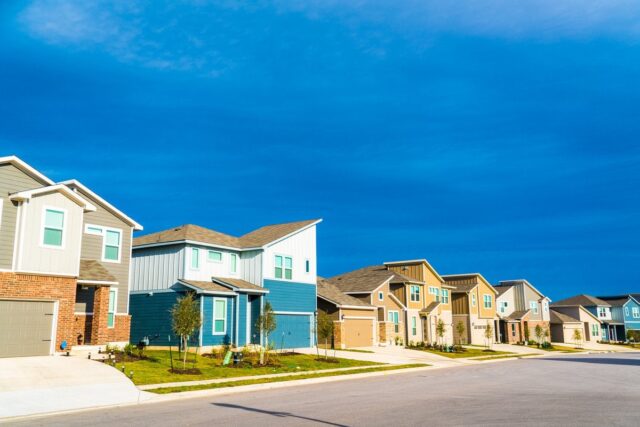
Investing in real estate is one of the routes many billionaires have taken to make their fortune. The industry is huge, and there is room for everyone to be successful as long as they’re smart about it. Whether you’re looking to become a full-time investor to quit your mundane office job or if you’re looking to do it on the side, you’ll be able to pull it off if you follow the basic rules of investing in real estate.
Property investment is one of the gears that turn to make the rich richer and even the poor richer. The financial state of the world is a bit unpredictable, and many types of investment are on the verge of collapse. But it seems that property investments are holding their ground pretty well with no chance of losing on the horizon. To become successful in property investments, you need to be able to know the exact value of a property to be able to sell or buy efficiently. For more information check out this website.
Fair Market Value

Before you begin your assessment, you need to figure out the Fair Market Value (FMV), which is the value that an average buyer would need to pay for a property. This process is done by using comparable data, which is a pool of information that is collected through a period of the previous 12 months that assesses all homes sold in that duration to give you a fair value connected to the market. This does take time and some experience, so a lot of people opt to use investment groups to make informed decisions.
Buying undervalued properties from different sources, according to highreturnrealestate.com, can ensure that you’re getting a good deal and different investment opportunities. Paying in cash and buying large quantities help investment groups in maintaining secure properties ripe for investment. The houses took in the assessment area of similar characteristics like age, area, and condition. You can either consult with a professional real estate agent or use the tax assessor’s office to get the information required to calculate comparable.
Replacement Cost and Property Income

A lot of investors calculate replacement costs in case there isn’t enough comparable data or as a way to compare the market data and see its accuracy. The replacement costs mean money that needs to be paid to rebuild this exact property on the same piece of land. It looks at labor, material costs, the price of the land, and the depreciation depending on the year.
The income of the property is a very important measurement, and it can be obtained by asking property owners or renters about the price they’re renting the property for. You can also consult real estate agents to get a detailed breakdown of the variation in rental prices of an area.
The Annual Net Operating Income
The annual net operating income is a required important piece of information that is later used in calculating the capitalization rate, which is an indicator of the real value of a property as an investment to the buyer. To be able to calculate it, compile the rental expected value over 12 months, and subtract the costs of operation and maintenance. Costs of operation include taxes, management fees, repairs, and maintenance.
Capitalization Rate

The capitalization rate is one of the main metrics that investors depend on to decide whether to invest in a property or not. All investors look for properties with the highest capitalization rates possible. It’s calculated by simply dividing the annual net operating income by either the purchase or market price. Properties that are considered worthy of investment have an average between 5% to 8.5%. If the property sold for $1 million and it had an annual net income of $100,000, then the capitalization rate would be 10%, which is a good investment.
Factoring Mortgage
A lot of property investors factor in mortgage to make accurate and informed decisions on their properties. The mortgage payment has to be subtracted from the general annual income rate of the property to be able to calculate the annual net operating income. The number you calculate is then divided by the down payments and maintenance required to keep the property rented. The total of $25,000 composed of $20,000 of down payments and $5,000 of repairs is used to divide the net operating income you’ll get the cash-on-cash return; dividing it by $30,000 would yield you the ROI, which will be 10%.
Gross-Rent Multiplier

This approach may be a bit similar to the annual net operating income approach, but it uses different points of interest to determine whether an investment is worth it or not. It doesn’t factor in some expenses like taxes, insurance, maintenance, and other utilities. The gross rent is considered the capitalization rate. The gross rent multiplier cap rate is always more than 1. Instead of a percentage, the gross rent multiplier is a direct ratio. To be able to see how a property does against its peer in a neighborhood, compare the gross rent multiplier rates.
To be able to calculate the gross rent multiplier, divide the sale price of the unit by the annual income it produces. You can easily find the market value of the property by multiplying the gross rent multiplier figures with the annual income. If it’s lower than the adjacent units, it may not be a worthy investment.
Cost Assessment
The cost approach is a more general approach to determining the real value of the real estate by taking into account what it can be used for the most. It’s a common way to determine the value of vacant land. The land value and depreciation value are both taken into account to come up with the cost. This isn’t an issue when purchasing a condominium, as usually, if you look up prices of condominium properties on CondoWizard, for instance, the price you see is the price you pay. It is different when purchasing a house and lot, though. If an investor is looking to purchase land to convert it into a commercial rental area, the costs will differ from areas that are purchased for oil drilling projects. The zoning of the area affects the cost of the property as areas not zoned for residential development are priced lower than zoned ones since rezoning can cost a lot.
Investing in properties is a process that requires efficient time management and keeping a close ear to the ground for any changes in the market. It might be overwhelming at first when you’re investing in properties, but you can always consult the professionals for a safer approach.







